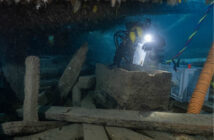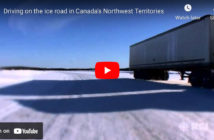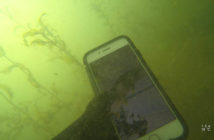The decision has been welcomed by conservationists, but has also been described by northern leaders as heavy-handed, with complaints that the opinions of local communities were excluded from the decision-making process.
The United States and Canada announced on Tuesday that both countries would move to ban offshore oil drilling in much of their Arctic waters. The U.S.has declared the vast majority of its waters in the Chukchi and Beaufort seas as off-limits “indefinitely,” while Canada won’t allow any further offshore Arctic oil and gas licensing, in a decision that will be reviewed every five years.
In the U.S., the news, as you would expect, is being cheered by conservationists and criticized by the oil industry and their Republican allies. The drilling ban has been accomplished by Barack Obama during his last month in office, thanks to an obscure 1953 law. Republicans are promising to challenge the decision in court.
The reaction from Canada’s oil sector has been more subdued – perhaps because there is currently no oil development in that country’s Arctic, and the federal government has recently approved two new pipelines. There are also experts who believe that predictions of a future bonanza of oil and gas exploitation in the Arctic are overhyped.
Last month, nearly three dozen scientists called on Obama to permanently ban offshore drilling in the Arctic, given the region’s extreme sensitivity to oil spills and the limited ability to respond to a spill in Arctic waters. The administration had already banned such work for the next five years, but the petition said this wasn’t enough.
While the news is being greeted as a major victory by conservationists, not all northern residents are happy. In both countries, some northern leaders are harrumphing about the drilling ban coming from up high, rather than putting decisions in the hands of local leaders. “Locking up the Arctic is akin to saying that outside voices are more important than the voices, lives and livelihoods of Arctic residents,” tweeted Alaska’s governor Bill Walker. “This unprecedented move marginalizes the voices of those who call the Arctic home and have asked for responsible resource development.”
Bob McLeod, the premier of the Northwest Territories in Canada, shared similar sentiments with Bloomberg News. “We thought we would have a collaborative relationship when it came to these types of decisions, and we’re very concerned,” he said, adding such decisions should include northern residents and not be “based on what would play to people in Vancouver, Toronto, Ottawa, what have you.”
It’s important to note the U.S. federal ban wouldn’t affect oil and gas activity in state waters. That includes existing North Slope activity and the massive Smith Bay discovery announced in October. Nor has it been specified how Canada’s ban would impact companies with existing oil and gas leases in the Arctic.
Tuesday’s sweeping announcement covered much more than Arctic drilling. Both countries, building on a pledge made in March, also vowed that their coast guards would work toward phasing out the use of bunker fuel in the Arctic. Furthermore, both countries plan to study how to best regulate Arctic shipping lanes and reaffirmed plans to work toward a plan to ensure Arctic fisheries are sustainably managed.









